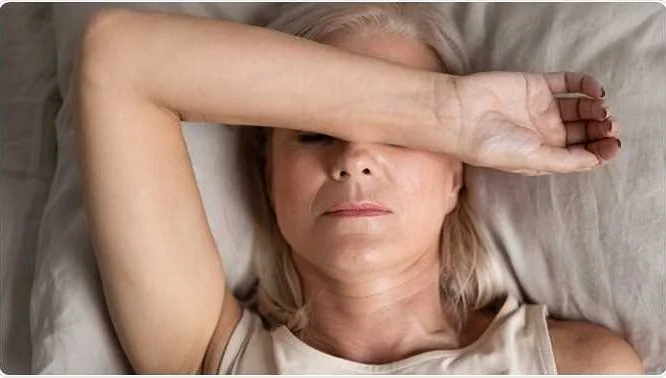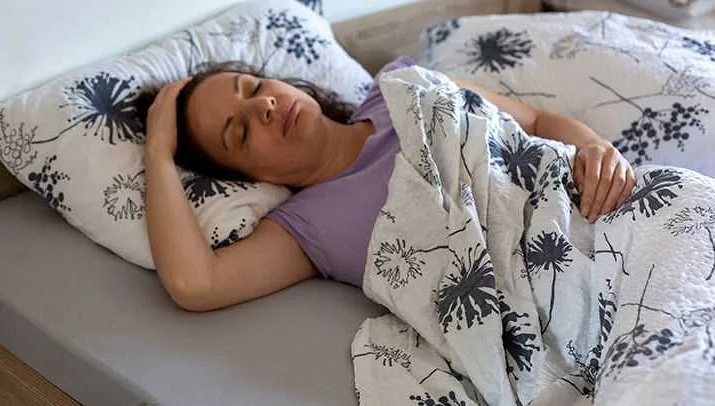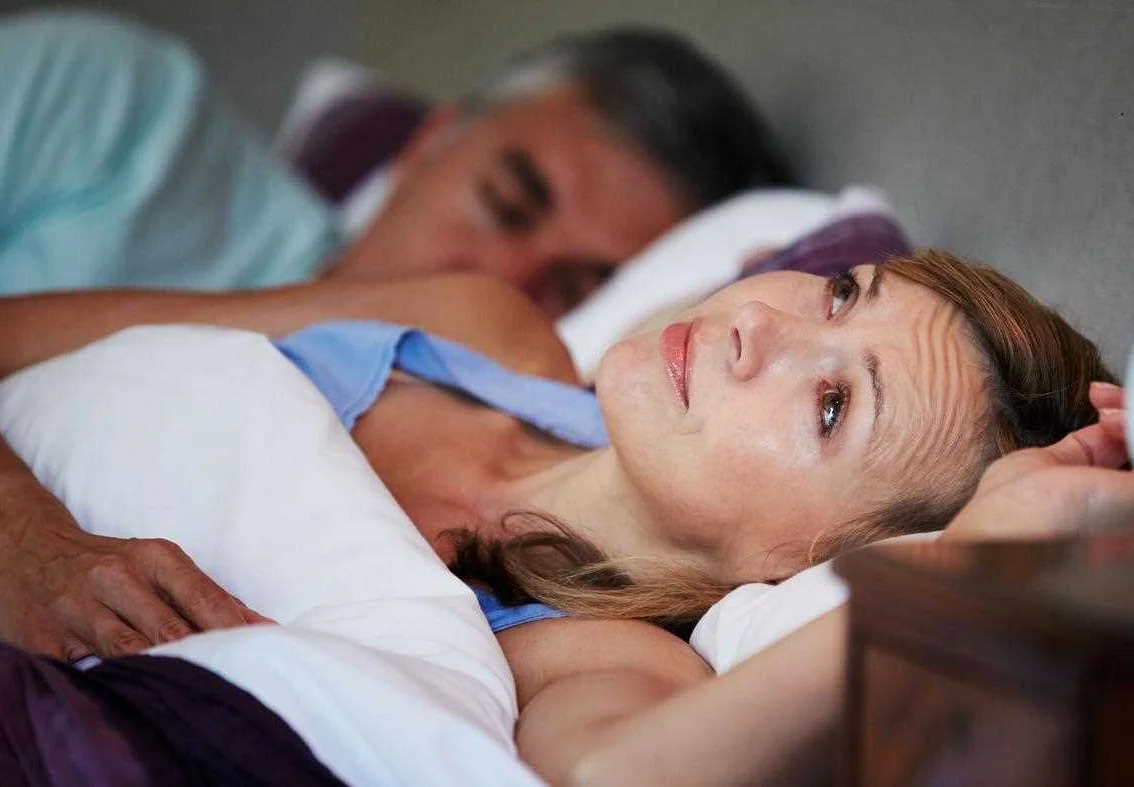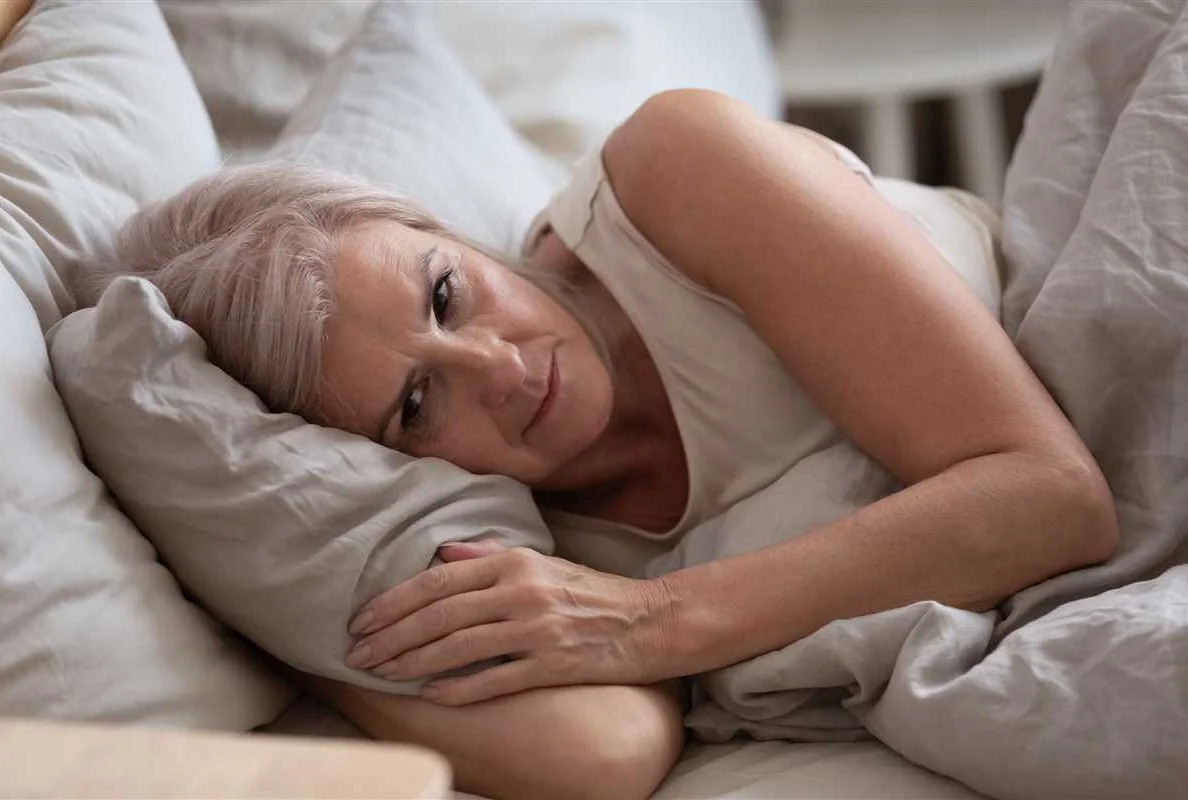Sleep Disturbance During Menopause in Women
Содержимое
Learn about sleep disturbances during menopause in women, including the causes, symptoms, and potential treatments. Find out how hormonal changes during this stage of life can impact sleep patterns and quality, and discover strategies for improving sleep and managing menopause-related sleep problems.
Menopause is a natural stage in a woman’s life when she stops having menstrual periods and is no longer able to conceive. It usually occurs between the ages of 45 and 55. However, this transition can bring about a wide range of symptoms, one of the most common being sleep disturbance.
Sleep disturbance during menopause can take many forms, including difficulty falling asleep, waking up frequently during the night, and waking up too early in the morning. These disturbances can lead to daytime fatigue, mood swings, and decreased productivity. Not getting enough quality sleep can also have long-term health consequences.
The causes of sleep disturbance during menopause are multifactorial. Fluctuations in hormone levels, particularly estrogen and progesterone, play a significant role. Hormonal imbalance can disrupt the natural sleep-wake cycle, making it challenging for women to fall and stay asleep. Other contributing factors include hot flashes, night sweats, anxiety, and depression.
There are several solutions available to help women manage sleep disturbance during menopause. Lifestyle changes, such as maintaining a regular sleep schedule, creating a relaxing bedtime routine, and avoiding caffeine and alcohol, can make a significant difference. Additionally, practicing relaxation techniques, such as deep breathing exercises or meditation, can help calm the mind and promote better sleep.
If lifestyle changes alone do not alleviate sleep disturbance, hormone replacement therapy (HRT) may be considered. HRT can help regulate hormone levels and improve sleep quality. However, it is essential to consult with a healthcare professional before starting any hormone therapy to discuss potential risks and benefits.
In conclusion, sleep disturbance during menopause is a common issue that can significantly impact a woman’s overall well-being. By understanding the causes and symptoms of sleep disturbance and implementing proper lifestyle changes and, if necessary, seeking medical intervention, women can improve their sleep quality and regain control over their daily lives.
Hormonal Changes

As women enter menopause, their hormones begin to fluctuate. In particular, there is a decline in the production of estrogen and progesterone, which are key hormones involved in regulating the sleep-wake cycle.
Estrogen plays a role in promoting deep sleep, while progesterone helps to regulate body temperature and promote sleepiness. As these hormones decline, women may experience disruptions in their sleep patterns.
Additionally, hormonal changes can lead to other symptoms that can further impact sleep. For example, hot flashes and night sweats, which are common during menopause, can cause discomfort and make it difficult to fall asleep or stay asleep.
| Decline in estrogen production |
| Decline in progesterone production |
| Increase in follicle-stimulating hormone (FSH) |
These hormonal changes can disrupt the natural sleep-wake cycle and contribute to sleep disturbances during menopause. Understanding the role of hormones in sleep regulation can help women find appropriate solutions and support for managing sleep problems during this transitional phase of life.
Hot Flashes and Night Sweats

One of the most common symptoms experienced by women during menopause are hot flashes and night sweats. These sudden and intense feelings of heat can leave women feeling uncomfortable, anxious, and exhausted. Hot flashes can occur during the day or at night, disrupting sleep and causing further sleep disturbances.
Hot flashes are believed to be caused by the hormonal changes that occur during menopause. A decrease in estrogen levels can cause the body’s thermostat to become more sensitive, leading to the sudden heating up of the body. Night sweats are essentially the same as hot flashes, but they occur during the night and can result in soaking wet sheets and disrupted sleep.
Hot flashes and night sweats can have a significant impact on a woman’s quality of sleep during menopause. Interrupted sleep can lead to feelings of fatigue, irritability, and difficulty concentrating during the day. In addition, the discomfort caused by hot flashes and night sweats can make falling back asleep after an episode difficult, further exacerbating the sleep disturbances.
Fortunately, there are several strategies that women can try to manage hot flashes and night sweats and improve their sleep during menopause. Wearing lightweight, breathable clothing and keeping the bedroom cool can help minimize the discomfort caused by hot flashes. Avoiding triggers such as spicy foods, caffeine, and alcohol may also help reduce the frequency and intensity of hot flashes.
In some cases, hormone replacement therapy (HRT) may be recommended to help balance hormone levels and alleviate hot flashes and night sweats. However, HRT is not suitable for everyone and should be discussed with a healthcare professional. Alternative therapies, such as acupuncture, herbal supplements, and relaxation techniques, may also provide relief for some women.
It is important for women experiencing sleep disturbances due to hot flashes and night sweats to seek support and treatment. By addressing these symptoms, women can improve their sleep quality and overall well-being during menopause.
Anxiety and Depression

During menopause, many women experience symptoms of anxiety and depression. These mental health issues can be caused by hormonal changes, physical discomfort, and other factors associated with menopause.
Anxiety is characterized by feelings of unease, worry, and fear. It can range from mild to severe and can interfere with daily activities and sleep. Women going through menopause may experience increased anxiety due to hormonal fluctuations, hot flashes, and other menopausal symptoms. Anxiety can also be triggered by the uncertainty and changes that come with this stage of life.
Depression is a mood disorder characterized by persistent feelings of sadness, hopelessness, and a lack of interest or pleasure in activities. Women going through menopause may be at an increased risk of developing depression due to hormonal changes and the physical and emotional challenges that come with this transition. Sleep disturbances, fatigue, and other menopausal symptoms can also contribute to feelings of depression.
It is important for women experiencing anxiety or depression during menopause to seek support and treatment. Therapy, such as cognitive-behavioral therapy, can help women learn coping mechanisms and manage their symptoms. Medications, such as antidepressants, may also be prescribed by a healthcare provider to help regulate mood and alleviate symptoms.
In addition to seeking professional help, there are lifestyle changes women can make to support their mental well-being during menopause. Regular exercise, practicing relaxation techniques, and maintaining a healthy diet can all contribute to improved mood and reduced anxiety. Engaging in activities that bring joy and maintaining a strong support system can also be beneficial.
| Anxiety | Depression |
| Feelings of unease, worry, and fear | Feelings of sadness, hopelessness, and loss of interest |
| Can interfere with daily activities and sleep | Can lead to a lack of motivation and decreased energy |
| Caused by hormonal fluctuations and menopausal symptoms | Caused by hormonal changes and emotional challenges |
| Therapy and medications can help manage symptoms | Therapy and medications can help regulate mood |
| Lifestyle changes can support mental well-being | Lifestyle changes can contribute to improved mood |
Physical Discomfort

One of the main factors contributing to sleep disturbances during menopause is physical discomfort. Many women experience symptoms such as hot flashes, night sweats, and vaginal dryness, which can make it difficult to sleep comfortably. Hot flashes are sudden sensations of heat that can cause sweating, flushing, and a rapid heartbeat, often waking women up from sleep. Night sweats are similar to hot flashes but occur during sleep, causing excessive sweating that can disrupt sleep and lead to discomfort.
In addition to hot flashes and night sweats, menopausal women may also experience vaginal dryness. This can lead to discomfort and pain during sexual intercourse, which can in turn interfere with sleep. Women may also experience other physical symptoms such as joint and muscle pain, headaches, and breast tenderness, all of which can make it difficult to find a comfortable sleeping position and stay asleep throughout the night.
To alleviate physical discomfort during menopause, there are several solutions women can try. Wearing breathable, moisture-wicking clothing and using cooling pillows or mattress toppers can help regulate body temperature and reduce the severity of hot flashes and night sweats. Using a water-based lubricant can help relieve vaginal dryness and make sexual intercourse more comfortable. Engaging in regular exercise, practicing relaxation techniques, and managing stress can also help reduce muscle and joint pain, headaches, and breast tenderness, promoting better sleep.
It is important for women experiencing physical discomfort during menopause to consult with their healthcare provider for personalized advice and treatment options. Each woman’s experience with menopause is unique, and healthcare providers can provide guidance on managing symptoms and improving sleep quality.